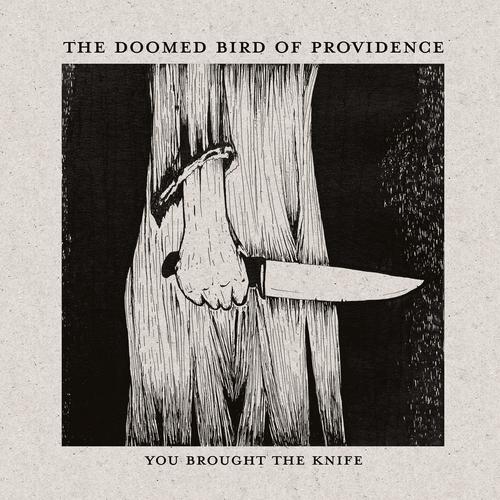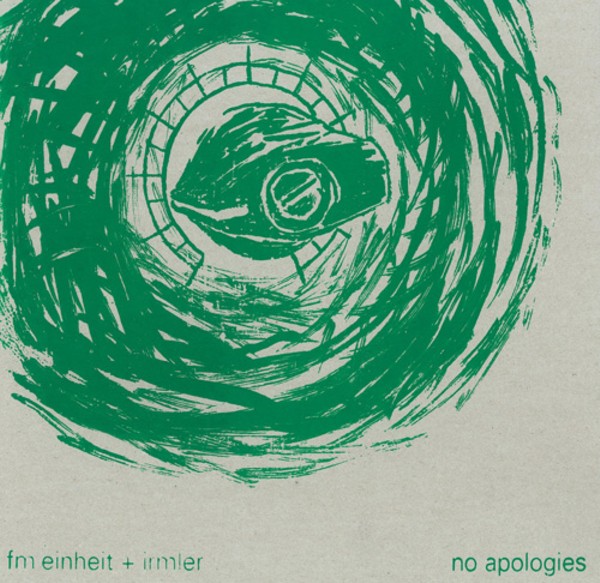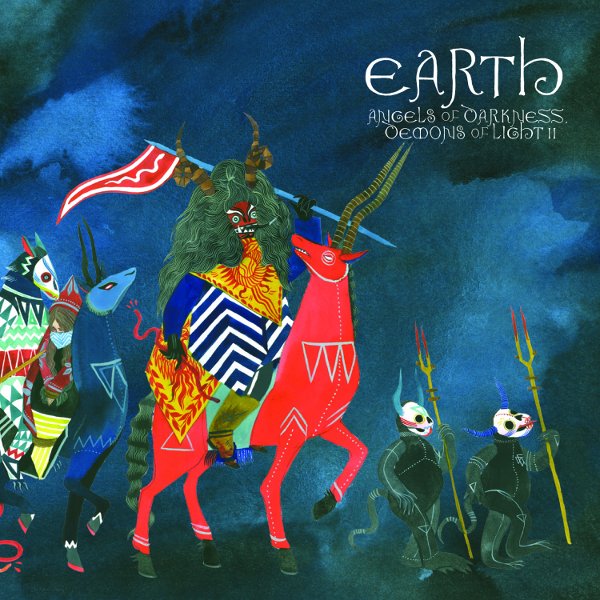South Bank Centre, London
27-29th May 2000
Now semi-permanently established at the South Bank for the past few years, the LMC Experimental Music Festival has become one of the fixtures of the London Improv and New Music scene, struggling through into something approaching mainstream cultural acceptance – though that’s a relative position of course. This isn’t to say that its become particularly watered down, blanded out or easily commercial; far from it, and while not everything will be pleasing to all ears, it neither should be nor could be, and much on offer is is such high quality that a few dull spots can easily be avoided by those disinclined to favour one piece of Avant-noodling will soon find another of superb quality for their edification and enjoyment.
Ninth time around, and Saturday’s Purcell Room show has two extreme of that which can be described as experimental – Die Trip Computer Die and Walter Marchetti. DTCD have all the right attitude and equoipment; wind up gramophones, electronics by the rackload, potatoes… Their best feature is the individual TV’s showing close-up of the musicians’ eyes throught their set; the least effective is their over-jokey presentation. Very English, quite deadpan, but lacking in real bite, and the trio end up seeming like pranksters who’ve stumbled onto Electronica and plunderphonics for a laugh. Which is fine, but there’s a spark missing from their show, no matter how many stunts involving close-micing/amplifying root vegetables (which is the highlight) they deploy.
Marchetti, on the other hand, is what many people would imagine to be the apotheosis of Avant-Garde game-playing. He arrived on a stage set with a grand piano and a music stand, proceeds to completely ignore the instrument, other than to lay out a trail of score sheets from the piano to stand, before gathering them all up to place thereon, back to audience, while a set of speakers broadcast his minimal recording of slowly-delayed notes to the auditorium as he slips one-lined score sheets from one side of the rack to the other. All the time he holds slips of paper in his hands, discarding them slowly but intently to the floor. After what seems like an unendurably long time, the performance ends (though one wag is heard to wonder if the performance is over whn the last audience member leaves) and it’s all as Situationist as anyone could possibly want. Now this is precisely the sort of thin this festival should encourage, if only for the odd part of it – too much of a good thing and all that – something which really does bring into question the notion of what exactly constitutes sitting in a hall and witnessing a performance.
Sunday brings the heavyweights into the Queen Elizabeth Hall, though throughout the weekend there’s a bubbling, pleasant melee in the foyer, between the assorted record stalls from stalwarts Recommended Records and the entertaining Jacques Brothers on the These Records table. Odd performances on the foyer stage from a man in amask reading the paper to slippery electronica and cello improvs abound, provoking various reactions between rapturous applause, bafflement and simple avoidance in favour of the bar. In the main cavern, Viv Corringham brings her sometimes indifferent, sometime slightly entertaining songs on subjects including the environs of the Holloway Road and its denizens to the stage, with the turntable slippage and needle-groove abuse of DJ Martin Tétreault largely wasted on this occasion. Charles Hayward, formerly drummer with This Heat, on the other hand, is a revelation and a bombshell in one.
Hayward crawls onstage in imitation of a child, crying and slowly edging towards his massive drum kit, before seating himself and proceeding to astound and energise with the breathtaking power of his show. Backed up by lo-tech tapes and singing in a highly-affecting moan about the gap between the Information Rich and Information Poor or the genetic modification of people as well as food. Rock and Roll? Yes indeed, but as far from the hairy head-down Grunge/Metal/R&B template as can be, and Prog too for that matter. If anything, it’s somewhere in the realms of Japanese Noise-Rock and the experimentalism of everyone from Faust to Caspar Brötzmann that Hayward’s energetic pulse of tape-riffs and primal drumming lies. Awesome.
Hoahio are the duo of Haco, who both sings and plays a mean electric mandolin, and Yagi Michiyo on koto. Their songs are of course all in Japanese, but the mixed sense of fun and seriousness are apparent in any or all musical languages. Michiyo’s playing of the koto’s strings reveals that she is not only a player of considerable conventional talent, but that she has developed an ability to pluck, strum and distend the possibilites of the instrument into shapes which would quite probably horrify her teachers. Now this really is where the trick lies; in the ability to forget instructions, avoid scores, and to head off into the abstract, the degenerate as some might even have it, and to combine that dissonance with what ordinary wisdom would have you believe melody and linear composition can only offer. Hoahio are very much the example of this skill, but essentially the whole festival revolves around it, revels in it.
Finally for Sunday night, Gert-Jan Prins, Lee Renaldo and William Hooker bombard the hall with their distraught electronics, (presumably resurrected) Sonic Youth guitars and Free-Jazz drumming respectively. For what seems like an aeon, the trio batter, grind and squall, weaving feedback into glitch and around the palsied, fractured rhythms of the almost demonic Hooker. Ebbing and flowing as good Improv should, there are few longuers, but more bursts of intensity cruising into attenuated soundscrapes the like of which will make the purists reach for their heckling if not their machine guns – for all the good it would do above the glorious din. Renaldo plays everything with his guitar; the monitors, the floor, his amps, sometimes almost wrenching the squeals of distortion from it’s body, sometimes gently coaxing while the drums crash into each other and the cocktail of electricity bubbles on Prins’ table. Cathartic’s the word.
The marathon continues on the third day back in the smaller Purcell Room, where Toshimaru Nakamura is a diffident form stood behind a simple mixer, and not a lot else. Through the apllication of channels feeding back on themselves in an accretion of pure tones made wrong and right at the same time, Nakamura produces some quite affecting swoops, whoops, sweeps and whorls out of nothing much more than electricity amplified exponentially into dangerous levels of intensity – which is proved when he sets a monitor on fire. Nice one, Toshimaru!
When Jean-Hervé Peron slips barefoot on stage with Big Simon on guitar and Chris Cutler at the drumkit, it’s with an air of anticipation that he is received. How will the former Faust frontman do without the chaoticians at his side, stood there with acoustic guitar in hand, and no sign of record sleeves to paint naked, or televisions to smash, as he informs the audience there won’t be tonight? The answer comes when he opens up into “It’s A Bit Of A Pain” – like a dream, taking layers from the songs more familiar from their metal-bashed backbeat and power-tooled melody, and making them anew in gentler form… almost. Peron’s set is quite affecting, not only for the chance to hear “The Sad Skinhead” or “Jai Mal Au Dents, Jai Mal Au Pieds Aussi” (a song misheard many times as “Cheb bad Buddha, ship on a better sea” – so sometimes Jean-Hervé sings those words too, a big grin on his face) in altered lights, but for the banter and stories which soon dispels his nervousness in favour of an exchange of good-humoured “Fuck off’s!” with certain sections of the audience.
Cutler’s drumming is a phenomenon in itself, light, precise, knowledgable. Big Simon is more than adequate in his semi-improvised extemporisations around the tunes of “Sixty Sixty” or while Jean-Hervé enthuses about being more like a tree, and brings forth his home-made double-neck guitar bass combo. A releatively short set, it’s to be hoped that the warm welcome his return provoked will encourage Peron into more live appearances in the near future.
The festival is brought to a close with a performance which recapitulates the aim of the event – Anna Homler, Steve Beresford and Richard Sanderson, arranged behind a long table-load of toys, electronics, kipple of all kinds made to produce work which veers from the whimsically obtuse to the eccentrically enlivening. Their set takes on moments of silliness, and then turns them into art, pure and simple. When Homler sings, it makes connections that the unaided instruments and junk couldn’t adequately explore on their own, and the balance between noisy chaos of a lo-tech kind, the cut-up potential of the electronics and human vocal extemporisation makes for a fitting slowdown into the drizzling night.



